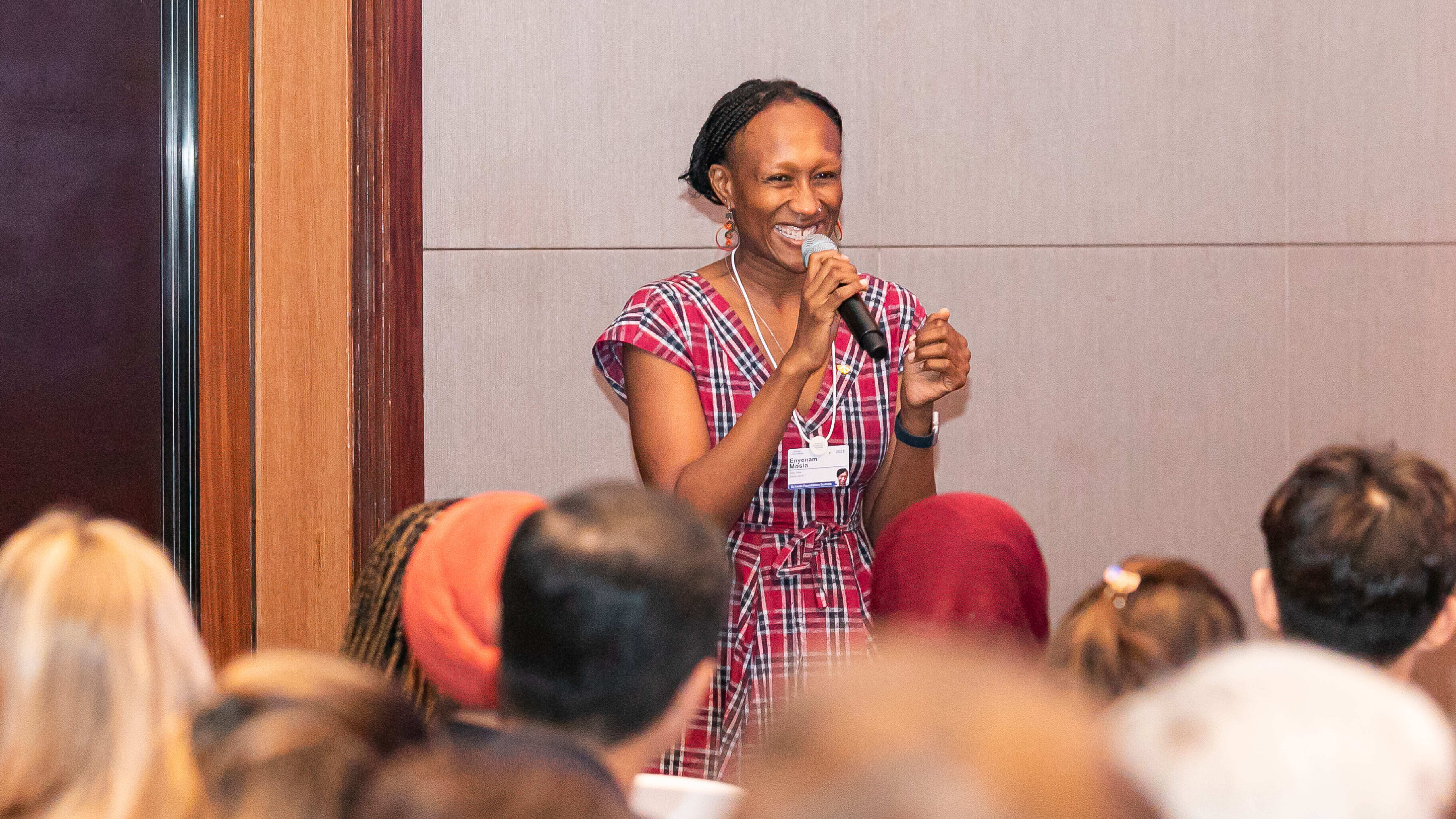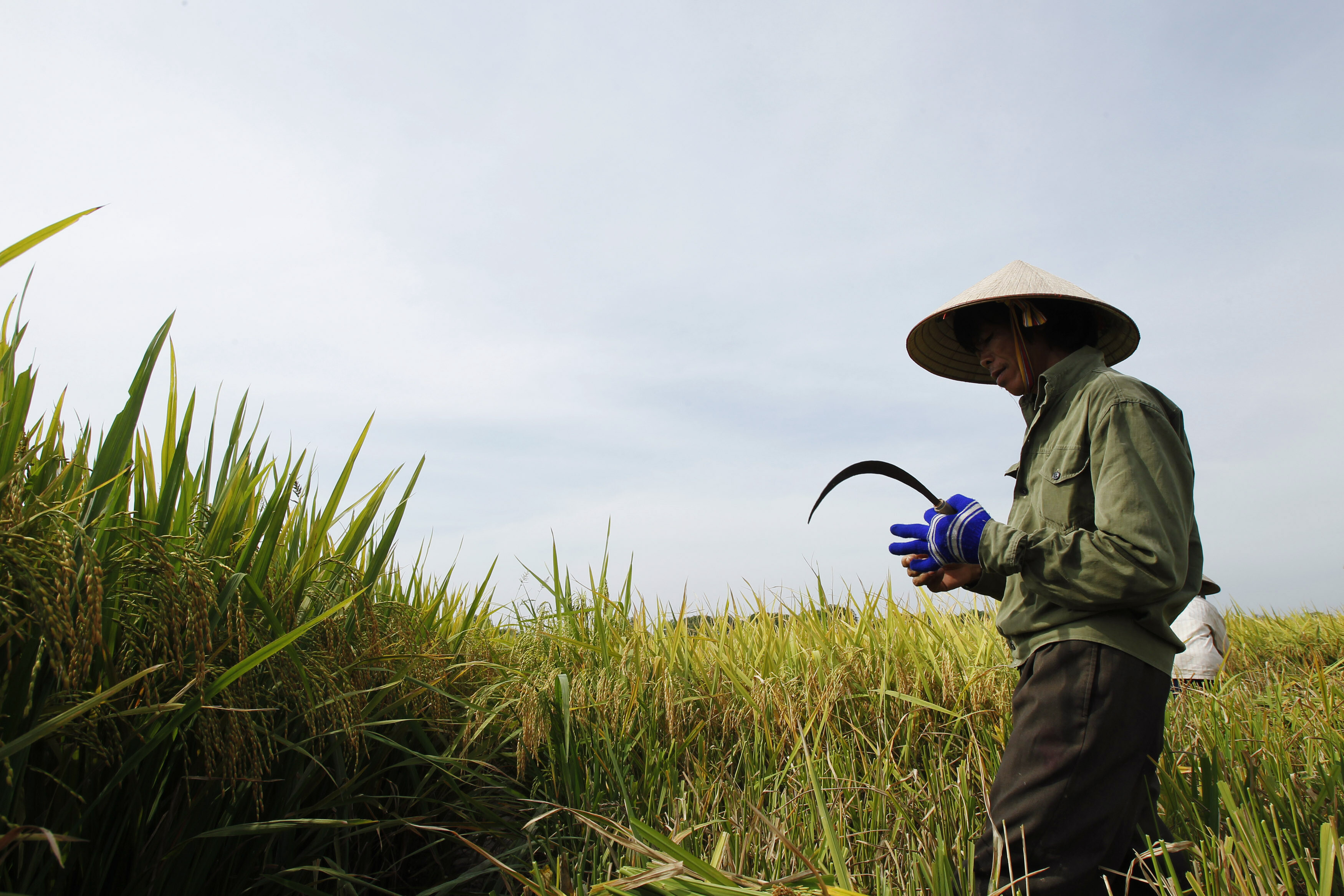4 social entrepreneurs share how innovative partnerships can drive a greener future

Social innovators can create solutions to combat the effects of climate change. Image: Jan Sahas
- Businesses and corporations are significant players in providing solutions to climate change and mitigating its causes and impacts.
- The three pillars recommended for corporate action to help combat climate change are enhancing resilience, capitalizing on opportunities, and shaping collaborative outcomes.
- Social innovators are making strides in providing innovative and effective solutions, including Jan Sahas in India, Build Bangladesh in Bangladesh, SEKEM in Egypt and Prabhat Model EcoVillages in India.
As leaders of business and governments gather for the 2023 United Nations Climate Change Conference (COP28), there has never been more urgency to address the climate crisis, especially in vulnerable communities who bear the economic and environmental brunt of increasing temperatures, floods and extreme weather events, but contribute the least to climate change.
At the same time, the private sector – a necessary ally with significant resources and capabilities – has been slow and fragmented in its response. On the other hand, social innovators are making strides to address global warming and its causes. These are pioneering individuals or organizations dedicated to finding unconventional but effective solutions to their communities’ critical social and economic challenges.
The UN Environmental Programme’s recently published Adaptation Gap Report identifies increasing finance to small and medium enterprises, including social innovators, as key to bridging adaptation gaps in developing countries that have incurred over $500 billion in climate-related damages over the past two decades.
The World Economic Forum’s Accelerating Business Action on Climate Change Adaptation report emphasizes the need for businesses and corporations to focus on climate adaptation efforts. It presents three pillars for corporate action, starting with assessing the physical and transition risks that climate change can pose due to its cascading impacts:
- Enhance resilience.
- Capitalize on opportunities.
- Shape collaborative outcomes.
Social innovators, operating at the intersection of creativity, technology, community engagement and climate adaptation, are setting exemplary models for the private sector to follow for incremental and transformative climate adaptation actions at scale.
Here are four social innovators deploying innovative strategies to address climate-related issues – from agriculture to water conservation and migration to sustainable value chains. These innovators’ solutions employ a bottoms-up collaborative approach that offers protection from climate change impacts, improves critical development outcomes and promotes sustainable models of development in their communities.
Building safeguards for climate-induced migration
Jan Sahas, India
UNHCR estimates that an average of 21.5 million people are displaced annually as a result of climate-related events, making climate-induced forced migration a monumental problem and leaving migrant workers vulnerable to exploitation.
Across South Asia, Jan Sahas is at the forefront of reducing the prevalence of adverse labour conditions by ensuring the safe migration of workers. In addition, the organization actively deploys several initiatives to improve workers’ livelihoods. Leveraging technology, the organization works with governments and the private sector to create a database of 1 million migrant workers, provide access to social protection, create a toll-free line and deploy an internet-enabled tracker that can help track migrant workers in real-time.
Through its grassroots multistakeholder initiative, the Migrants Resilience Collective, Jan Sahas addresses the social and security needs and common challenges that vulnerable families in India face. It has impacted over 5 million migrant households, with an end goal of reaching 10 million households. It also helps companies design responsible and human-centred policies for workers, ensuring ethical value chains.
The initiative demonstrates the importance of bottom-up, community-led solutions to adaptation, the tangible impact on communities and the mutual value created when the private sector and social innovators collaborate.
Ensuring potable water supply
Build Bangladesh, Bangladesh
Almost 30% of the global population lacks access to safe drinking water. Severe weather events, including higher temperatures, floods and frequent droughts, resulting from shifting climate systems, will contribute further to the pressure on inadequate water supply systems and exacerbate this figure. In the Bandarban district in Bangladesh, this impact is already felt as community members travel long distances to collect water for household use.
Build Bangladesh tackles water supply and storage risks in vulnerable communities through its Prokriti o Paani initiative. Through this initiative, the organization constructs water towers that collect water from natural climatic elements through cloud water harvesting, humidity collection and rainwater storage.
This solution provides safe and pollutant-free water to communities year-round, reducing water scarcity. By strategically placing water towers in the central locations within communities, the initiative has enabled four localities to save 168 hours daily that would have been spent sourcing, fetching and storing water. Furthermore, it guarantees the safety of women and children, the primary water gatherers, and allows children to concentrate on their education without collecting water.
Using locally sourced materials in constructing the water towers not only boosts the local economy but also provides Build Bangladesh with an economically feasible solution for the vulnerable communities in which they operate. The collaborative and inclusive approach to water tower construction also ensures longevity and sustainability, with all parties invested in its success.
Leading a regenerative agriculture revolution
SEKEM, Egypt
SEKEM, headed by Schwab Foundation awardee Helmy Abouleish, draws on historical antecedents in Egypt’s Nile Delta to spearhead the movement for regenerative agriculture in the North African Arab Republic, aimed at addressing climate adaptation. Regenerative agriculture is one of the most feasible and sustainable climate adaptation efforts, owing to its emphasis on maintaining soil integrity, optimal use of land soil systems and ability to accommodate diverse forms of agriculture.
SEKEM, through its Economy of Love initiative, combines environmental responsibility with business acumen to democratize access to organic produce, ensuring every household’s access at low costs.

To achieve this goal, Economy of Love trains smallholder farmers in eco-friendly and regenerative agricultural practices that centre the long-term integrity of their land. The initiative fully integrates sustainability into every aspect of its business practices, including guaranteeing fair compensation and sustainable finance tools such as global carbon credits and micro-loans to provide farmers with access to capital. As well as practising regenerative agriculture, the organization collaborates with larger corporations to reduce Scope 3 emissions by incorporating sustainability into their supply chains.
Since its inception, Economy of Love has planted over 370,000 trees and sequestered 16,600 tonnes of carbon dioxide. The organization’s model and outcomes exemplify the transformative and meaningful impact that can occur at the intersection of business and the environment. SEKEM will build on current momentum at COP28 by presenting the joint call for “Organic and Climate Positive Agriculture” to a diverse and global group of corporate and public sector stakeholders and announce the start of its “40,000 Farmers for a Regenerative Future in Egypt” initiative.
Building climate resilience in manufacturing
Prabhat Model EcoVillages, India
Prabhat, a community development project of Hindustan Unilever, exemplifies the strength of corporations as agents for social innovation. For more than 10 years, the initiative has embraced a bottom-up strategy to recognize, tackle and endorse the needs of communities along its supply chains.
A crucial objective of the Prabhat initiative is enhancing the climate resilience of its communities via the development of its Model EcoVillages, which utilize an integrative approach to address environmental problems, spanning from water conservation to waste management. The ultimate objective of these EcoVillages is to achieve a zero-waste-to-landfill status, contributing towards climate resilience in resident communities.
To date, the Prabhat Model EcoVillages have been implemented at 26 Hindustan Unilever manufacturing sites across more than 1,000 villages, employing 65,000 individuals and positively affecting the lives of 9 million people. In addition to building climate resilience, the initiative aims to tackle climate migration, particularly in rural and semi-urban regions, through collaboration between internal teams, community leaders and government institutions to enhance the well-being of the communities where they operate.
This collaborative approach allows workers to thrive; the stakeholder approach creates a pull factor for workers to commit to developing their communities, reducing climate-induced migration.
Among escalating climate-related challenges, the role of social innovators in climate adaptation cannot be overstated. They spearhead ground-breaking climate adaptation solutions that can protect communities and ecosystems, making collaboration between social innovators, businesses, governments and philanthropic organizations a strategic choice and ethical imperative. Learn more about the work and impact of social innovators here.

Don't miss any update on this topic
Create a free account and access your personalized content collection with our latest publications and analyses.
License and Republishing
World Economic Forum articles may be republished in accordance with the Creative Commons Attribution-NonCommercial-NoDerivatives 4.0 International Public License, and in accordance with our Terms of Use.
The views expressed in this article are those of the author alone and not the World Economic Forum.
Stay up to date:
SDG 13: Climate Action
Related topics:
Forum Stories newsletter
Bringing you weekly curated insights and analysis on the global issues that matter.







